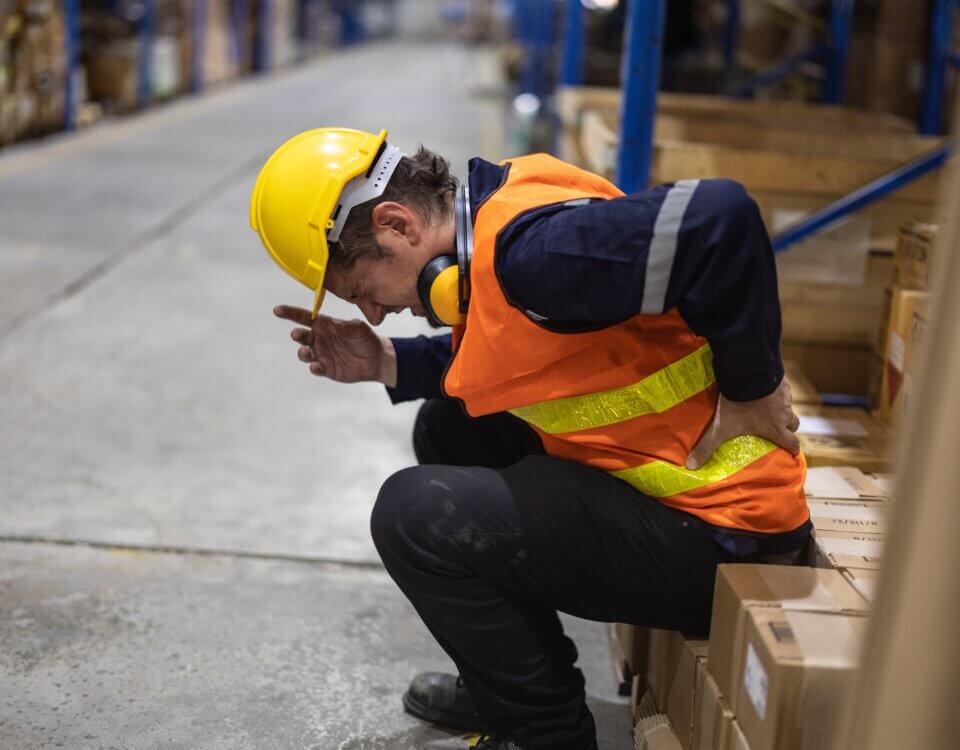Back injuries are among the most common health issues affecting millions of people each year. While they’re often associated with muscle strains, herniated discs, or nerve damage, back injuries can also impact the organs in the lower back, leading to more serious health complications.
At Hillstone Law, we understand how devastating back injuries can be not only because of the pain but also because of the hidden medical issues they may cause. Below, we explore the connection between back injuries and the organs in your lower back, the warning signs to watch for, and what you should do if negligence caused your injury.
Anatomy of the Lower Back
The lower back, or lumbar region, is a complex structure that supports most of your body’s weight and allows for movement and flexibility. In addition to muscles, ligaments, vertebrae, and nerves, this area is also home to key organs, including:
- Kidneys: Located on either side of the spine, just below the ribs.
- Large intestine and colon: Parts of the digestive system that sit in the lower back area.
Because of this overlap between structural and organ systems, back injuries can sometimes lead to kidney trauma, bowel issues, or other organ-related complications.
How Back Injuries Affect Organs in the Lower Back
Back injuries can occur from a variety of causes including car accidents, workplace incidents, falls, or repetitive strain and their effects often extend beyond the spine.
- A blunt force impact to the lower back can injure the kidneys, sometimes leading to internal bleeding.
- Chronic strain or nerve impingement may cause bowel or digestive complications.
- Underlying conditions, like osteoporosis, can make the lower back more vulnerable to organ-related injury after an accident.
Signs and Symptoms to Watch For
Recognizing early warning signs can help you seek timely treatment and avoid long-term complications. If you’ve suffered a back injury, be alert for the following symptoms:
- Persistent or severe lower back pain
- Blood in urine or painful urination (possible kidney trauma)
- Constipation, diarrhea, or changes in bowel habits (possible colon involvement)
- Unexplained weight loss, which may point to digestive issues
- Fever and chills, which could signal an infection, such as a kidney infection
If you experience any of these symptoms after a back injury, seek medical care immediately.
Medical Treatment Options
Proper diagnosis is crucial when back injuries may be impacting internal organs. Healthcare providers often use imaging tests like X-rays or MRIs to determine whether the injury is musculoskeletal, organ-related, or both.
Treatment may include:
- Medication to manage pain and reduce inflammation
- Physical therapy to restore mobility and strengthen the back
- Surgery in severe cases, such as spinal injuries or internal organ damage
Prompt medical care not only improves recovery but also helps build a record of your injuries, which can be vital in a legal claim.
Legal Guidance After a Back Injury
Many back injuries affecting the lower back and its organs result from accidents caused by someone else’s negligence such as car crashes, workplace hazards, or unsafe premises. In these cases, you may be entitled to compensation for:
- Medical expenses
- Rehabilitation and physical therapy
- Lost income or reduced earning capacity
- Pain and suffering
- Emotional distress
At Hillstone Law, our experienced back injury attorneys fight to ensure victims receive the compensation they deserve. We handle the legal process so you can focus on your recovery.
Hillstone Law: Protecting Victims of Serious Back Injuries
Back injuries that affect the organs in the lower back are serious and often life-altering. At Hillstone Law, we stand with victims every step of the way from securing top medical care to pursuing the financial compensation needed for recovery.
Contact Hillstone Law today for a free consultation. We’re available 24/7 to protect your rights and help you rebuild your life after a back injury.


